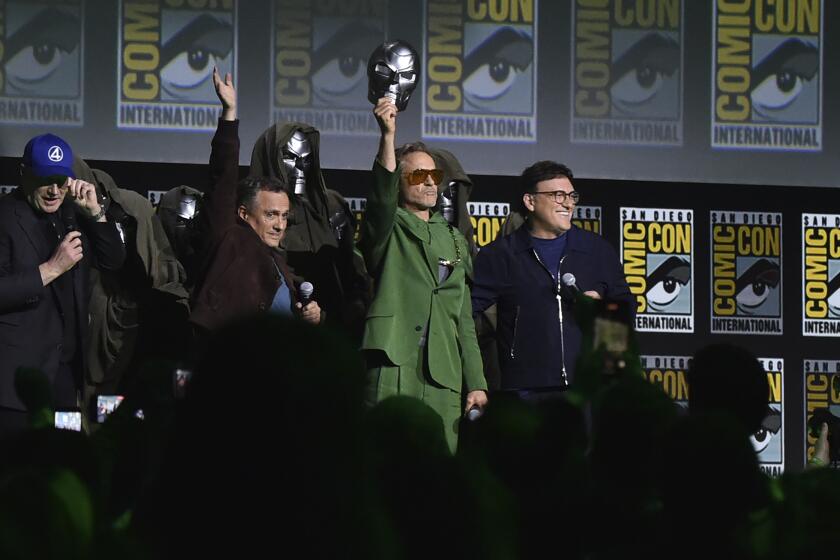The Palace’s Surreal Life
- Share via
The Vietnam War came before garage bands, karaoke, hand-held digital video and laptops. Before spoken-word art begat rap. Before embedded moviemakers.
Vietnam was seem mostly through news footage: battle images, briefings, somber voice-overs and nervous troops trying to speak into the camera. Its best- remembered documentaries were about the war at home: Kent State, the 1967 Harlem protest, Berkeley flower power. The first televised war was, culturally, a practice run -- its art came later, well digested.
The Iraq war, four decades later, is on cultural fast-forward, nowhere more visible than in the documentary “Gunner Palace.” If Michael Moore’s march-to-war movie “Fahrenheit 9/11” was a hammer to the head, “Palace” is an open door. It invites us into the surreal lives of U.S. artillery troops in their semi-ruined Baghdad palace headquarters.
The quiet camera of co-directors Michael Tucker and Petra Epperlein shows young men and a few women unfiltered, cramming their fear behind imperfect bravado on patrol, later romping like the teenagers that they are. Would they risk their lives to detour for a decent burger? Yes.
They struggle imperfectly to learn the cultural manners a 20-year-old gunner isn’t taught. One hour holding hands with Iraqi children, another knocking down reinforced doors of suspected insurgents’ homes.
The improvised explosive device might get them tomorrow, but today, back at Uday Hussein’s old pleasure palace, they plug in the guitar and whack out power chords. Or rap their bewilderment at this alien place. They dream of cold beer.
Director Tucker said as the movie was released last month, “At times, it didn’t feel like we were making a war documentary. Rather it was like a fictional movie, driven largely by the cinema of war.”
The older officers in aloha shirts around the well-tended palace pool, doing MASH. Younger guys channeling “Platoon” and “Full Metal Jacket” to a heavy-metal soundtrack on armored-vehicle patrol. “For the teenagers,” Tucker said, it was “Jackass Goes to War.”
No wonder the mistrust, doubts and crack-up jokes mix so freely.
Art, in an older definition, might tell us how to think. Richmond Shaw, “Palace” soldier and spoken-word poet, just wants to tell us how he thinks:
Trials and tribulations daily we do
And not always life’s pains wash away in our pool
When we take a dip, we try to stick to the script
But when those guns start blazing and our friends get hit
That’s when our hearts start racing and our stomachs get woozy
Cuz for y’all this is just a show, but we live in this movie.
More to Read
Only good movies
Get the Indie Focus newsletter, Mark Olsen's weekly guide to the world of cinema.
You may occasionally receive promotional content from the Los Angeles Times.










